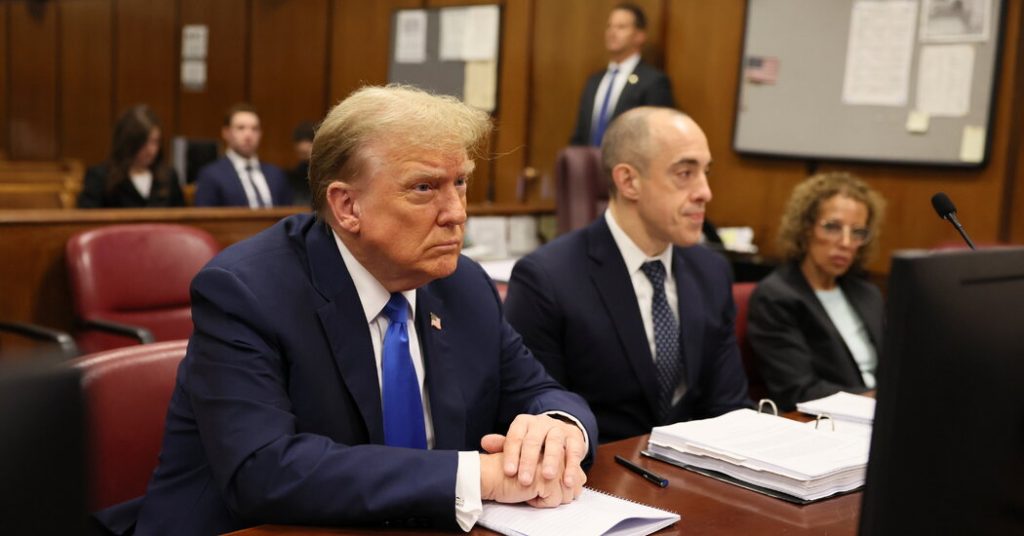A jury of 12 citizens has been selected to decide the fate of former president Donald J. Trump, who is facing charges of falsifying records to cover up a sex scandal. If convicted, Mr. Trump could face up to four years in prison. The selection of the jury was both routine and unprecedented, as it marked the first time in American history that a former president has stood trial as a criminal defendant. The jurors, who hail from diverse backgrounds and neighborhoods in Manhattan, were sworn in by Justice Juan M. Merchan and could hear opening arguments as soon as the following Monday.
Mr. Trump, a polarizing figure in American politics, has challenged the integrity of the jury and the judge while asserting that he cannot receive a fair trial in a Democratic-leaning county where he is unpopular. His attacks on the justice system have emboldened his base and could have broader implications on the campaign trail. However, it will be the 12 jurors in New York who will ultimately decide his fate before the larger public weighs in at the polls. The jury’s makeup and the security of its members will be central to the landmark case.
During the selection process, several prospective jurors were excused for various reasons, such as concerns about revealing their identity, credibility issues, or potential bias. The rigorous vetting process included questions about their political leanings, media consumption, and views on Mr. Trump. While some expressed support for the former president, others were critical of his persona. The final 12 jurors represent a cross-section of Manhattan, reflecting the city’s diversity in terms of race, gender, age, and profession.
The trial has been marked by tensions and challenges, including Mr. Trump’s repeated violations of a gag order and public attacks on prospective jurors and witnesses. The Manhattan district attorney’s office has requested that the former president be held in contempt of court for his actions. Despite the judge’s efforts to maintain decorum in the courtroom, Mr. Trump continues to test the boundaries of the legal process, while his political allies launch attacks on the judge and jury’s impartiality.
The jury selection process was further complicated by dismissals and replacements, underscoring the intense pressure faced by jurors serving in this high-profile case. The judge expressed disappointment over losing two jurors in one day before the trial even began, emphasizing the unique challenges posed by this case. As the trial moves forward, with opening arguments imminent, the jurors will be tasked with rendering a fair and impartial verdict that could have far-reaching implications for the nation’s political and legal landscapes.
In summary, the selection of the jury in the trial of former president Donald J. Trump represents a historic moment in American history. The trial, which could shape the nation’s political and legal future, pits Mr. Trump against the justice system he once controlled as president. The 12 jurors, drawn from diverse backgrounds and neighborhoods in Manhattan, will have the responsibility of deciding his fate. The trial has been marked by tensions, challenges, and controversies, as Mr. Trump continues to test the boundaries of the legal process. Ultimately, it will be the jurors who will determine the outcome of this landmark case.


